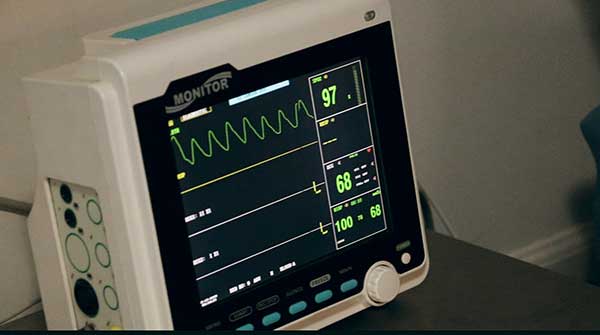Analysis through machine learning can help healthcare system “learn” by providing information vital to improving care
If you’ve ever been admitted to hospital or visited an emergency department, you’ve likely had an electrocardiogram, or ECG, a standard test involving tiny electrodes taped to your chest that checks your heart’s rhythm and electrical activity.
Hospital ECGs are usually read by a doctor or nurse at your bedside, but now researchers are using artificial intelligence to glean even more information from those results to improve your care and the healthcare system all at once.

|
|
| Related Stories |
| Our healthcare system is the very definition of insanity
|
| A provincial remedy to the excesses of medical assisted suicide
|
| Want to be healthy and happy? Get married
|
In recently published findings, the research team built and trained machine learning programs based on 1.6 million ECGs done on 244,077 patients in northern Alberta between 2007 and 2020. The algorithm predicted the risk of death from that point for each patient from all causes within one month, one year and five years with an 85 percent accuracy rate, sorting patients into five categories from lowest to highest risk. The predictions were even more accurate when demographic information (age and sex) and six standard laboratory blood test results (creatinine, kidney function, sodium, troponin, hemoglobin and potassium) were included.
The study is a proof-of-concept for using routinely collected data to improve individual care and allow the healthcare system to “learn” as it goes, according to principal investigator Padma Kaul, professor of medicine and co-director of the Canadian VIGOUR Centre.
“We wanted to know whether we could use new artificial intelligence and machine learning methods to analyze the data and identify patients who are at higher risk for mortality,” Kaul explains.
“These findings illustrate how machine learning models can be employed to convert data collected routinely in clinical practice to knowledge that can be used to augment decision-making at the point of care as part of a learning healthcare system,” the researchers conclude in the study.
A clinician will order an electrocardiogram if you have high blood pressure or symptoms of heart disease, such as chest pain, shortness of breath or an irregular heartbeat. The first phase of the study examined ECG results in all patients, but Kaul and her team hope to refine these models for particular subgroups of patients. They also plan to focus the predictions beyond all-cause mortality to look specifically at heart-related causes of death.
Kaul says Alberta is in a good position to analyze population-level data because so much is collected and archived within the publicly funded healthcare system.
“There is a big push to see how we can use AI to improve the delivery of healthcare,” says Kaul, who also holds the Heart & Stroke Chair in Cardiovascular Research and Canadian Institutes of Health Research Chair, Sex and Gender Differences in Diabetes, and is an adjunct professor with the University of Alberta’s School of Public Health. “For Albertans, this is really a demonstration of their data at work.”
The advantage of using high-powered computing is that, unlike humans, it can see the patterns in a multitude of data points at once, Kaul says.
“We want to take data generated by the healthcare system, convert it into knowledge and feed it back into the system so that we can improve care and outcomes. That’s the definition of a learning healthcare system.”
| By GILLIAN RUTHERFORD
This article was submitted by the University of Alberta’s Folio online magazine, a Troy Media Editorial Content Provider Partner.
The opinions expressed by our columnists and contributors are theirs alone and do not inherently or expressly reflect the views of our publication.
© Troy Media
Troy Media is an editorial content provider to media outlets and its own hosted community news outlets across Canada.

